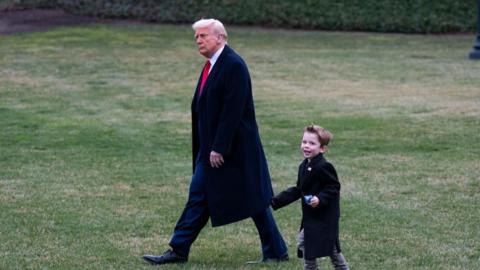Elon Musk's time in the Trump administration is coming to an end after a tempestuous 129 days in which the world's richest man took an axe to government spending - stirring ample controversy along the way.
Earlier this week, the South African-born billionaire, on his social media platform, X, thanked President Trump for his time at the Department of Government Efficiency, or Doge.
Trump announced he will host a news conference in the Oval Office on Friday with Musk, writing: "This will be his last day, but not really, because he will, always, be with us, helping all the way."
While Musk's time in government lasted little more than four months, his work with Doge upended the federal government and had an impact not just in the halls of power in Washington - but around the world.
Let's take a look at some of the ways Musk has left a mark.

